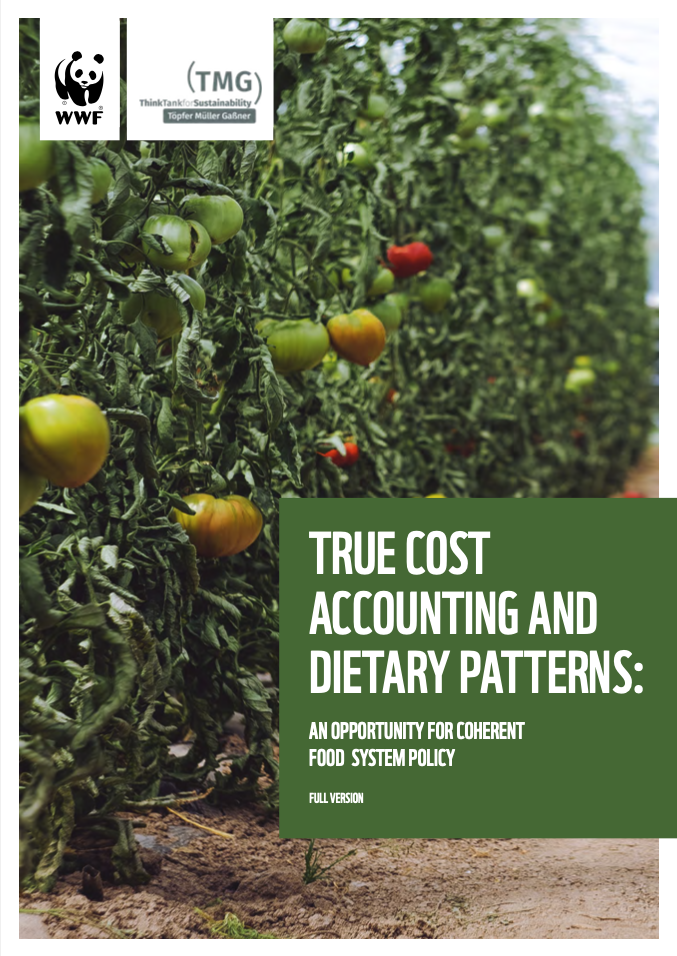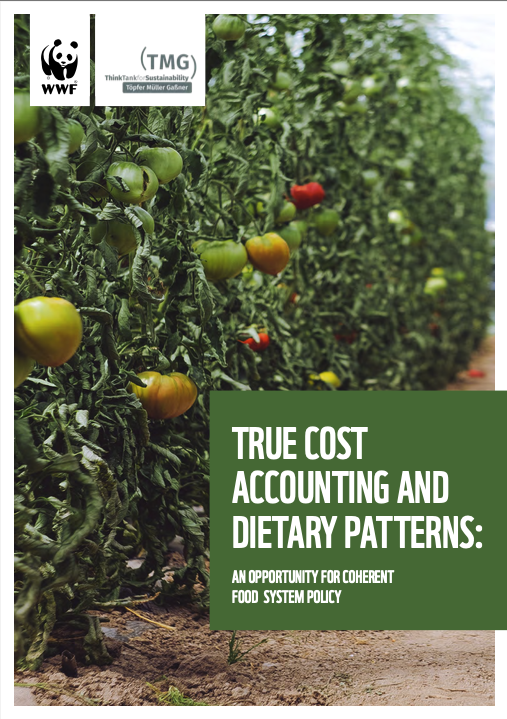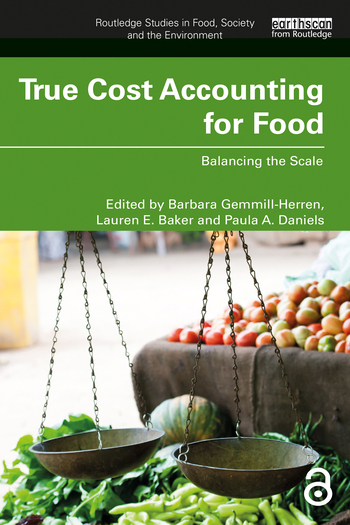True Cost Accounting as a Policy Tool
The world’s food systems faces a set of interlinked challenges. We need to feed a growing global population, achieve the internationally agreed targets of the Paris Agreement, stay within the planet’s environmental limits, and ensure no one falls below the “social floor” (i.e. ensure a minimum level of well-being, including access to food, water, education, healthcare, equality and living wages).
At present, food systems are part of the problem, causing or contributing to a host of environmental and social crises, including: soil and nutrient loss, air and water pollution, biodiversity and habitat loss, greenhouse gas emissions, poor wages, gender inequality, and high-risk jobs. But they can also become part of the solution—if we move beyond the current policy stasis to develop comprehensive, wide-ranging and truly transformative food system policy change.
Current siloed policy approaches—that focus on, e.g., agriculture or food aid—fail to address the deep interconnectedness of food systems. A more holistic, integrated and systems-based approach is needed to design policies that take into account hidden costs and benefits at every stage of the production, supply and consumption chain.
True Cost Accounting (TCA) assesses the economic, ecological, health and social costs and benefits of food systems. This provides accurate and reliable data so that policymakers can create effective policy to increase sustainability.
Executed by TMG GmbH, this consultancy provided support to the International Climate Initiative (IKI) project, “Establishing Sustainable Consumption and Production—a South-South Transfer,” coordinated by WWF Germany. It sought to answer the core question: how can True Cost Accounting be used as a policy tool to support the design of consumer policies that successfully incentivize sustainable and healthy food consumption?
The findings were published in the report True Cost Accounting and Dietary Patterns: The Opportunity for Coherent Food System Policy and the working paper True Cost Accounting and Dietary Patterns: A Strategy for Transformative Food Systems. They also fed into relevant global policy processes, including the UN World Food Systems Summit 2021 and the 15th session of the Conference of the Parties of the UN Convention on Biological Diversity.
Details
Publications

Working Paper
True Cost Accounting and Dietary Patterns: A Strategy for Transformative Food Systems
An analysis of the true costs of sustainable and healthy food and how True Cost Accounting, TCA can be argued for – and what political asks can be phrased from it – starting from the vantage point of sustainable diets.
Written by Michael Hamm, Olivia Riemer, Alexander Müller, Kathleen Merrigan
Published on Feb 02, 2022

Report
True Cost Accounting and Dietary Patterns: The Opportunity for Coherent Food System Policy (Full Report)
An analysis of the true costs of sustainable and healthy food
Written by Michael W. Hamm, Olivia Riemer and Tanja Ploetz
Published on Dec 09, 2021

Report
True Cost Accounting and Dietary Patterns: The Opportunity for Coherent Food System Policy (Short Version)
An analysis of the true costs of sustainable and healthy food
Written by Michael W. Hamm, Olivia Riemer and Tanja Ploetz
Published on Dec 09, 2021

Article
International Policy Opportunities for True Cost Accounting in Food and Agriculture
Book Chapter
Written by Barbara Gemmill-Herren, Zoltán Kálmán and Alexander Müller
Published on Jun 23, 2021
News & Blog Posts
‘FAO acknowledges that it neglected costs of food systems in its accounting’


